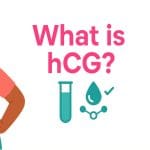Some health conditions make ovulation less predictable, affect egg quality, or alter implantation. This page gives an overview of common issues such as PCOS, endometriosis and thyroid disorders, and how they might change your chances of pregnancy.
If you want to see rough numbers while you read, you can use tools like the Advanced Pregnancy Chance Calculator, the One-Time Pregnancy Calculator, the Fertility by Age calculator or the Ovulation Calculator.
PCOS (Polycystic Ovary Syndrome)
Common, treatable, and often compatible with pregnancy, especially with cycle tracking or treatment.
- What changes: Irregular or absent ovulation. Higher androgens and insulin resistance patterns can affect egg release.
- What helps: Cycle tracking, weight management if advised, and medicines such as metformin or ovulation induction prescribed by a clinician.
- Plan: Keep notes on bleeding patterns, ovulation test results and symptoms. If you want a numerical estimate that blends age, timing and health factors, you can compare scenarios in the Advanced Pregnancy Chance Calculator after you have a few cycles of data.
Endometriosis
Can lower natural conception rates through inflammation and adhesions, but many people still conceive, sometimes after treatment.
- What changes: Pelvic inflammation, potential effects on egg pickup and implantation, and pain that can reduce timing opportunities.
- What helps: Pain management, surgical removal of lesions when indicated, and a discussion with a specialist about timelines.
- Plan: Record pain, cycle length and how often you are able to have intercourse around the fertile window. You can use the Fertility by Age calculator to get a broad age based baseline, then see how lifestyle and timing might shift that in the Advanced Pregnancy Chance Calculator, keeping in mind that these tools cannot include the full effect of endometriosis.
Thyroid disorders (hypo and hyper)
Thyroid hormones influence ovulation and luteal function, and values outside the target range can disrupt cycles.
- What changes: Irregular cycles, anovulation or luteal phase problems if thyroid levels are not treated.
- What helps: Testing and medication to reach a preconception friendly range recommended by your clinician. Thyroid levels are usually rechecked after dose changes.
- Plan: Once treatment is stable and cycles settle, track periods and ovulation over a few months. You can then use the Ovulation Calculator to check likely fertile days and, if you wish, enter your typical timing into the Advanced Pregnancy Chance Calculator to see how often you are likely to hit that window.
Other conditions and lifestyle
- Metabolic and autoimmune: Diabetes, coeliac disease and autoimmune thyroid disease can affect ovulation or implantation. Work with your clinician to optimise control before and during pregnancy planning.
- Prolactin and elevated androgens: Raised prolactin or androgen levels can suppress ovulation. Investigation and treatment can often remove or reduce the underlying cause.
- Lifestyle: Smoking, high alcohol intake, poor sleep and extreme training or low BMI can reduce fertility. Changes in these areas can improve overall health and may support fertility.
FAQs
Can I conceive naturally with PCOS?
Does endometriosis mean I’ll need IVF?
Should I test thyroid before trying?
Educational content only; not medical advice. Always discuss diagnosis and treatment with a qualified clinician.
Last reviewed:


